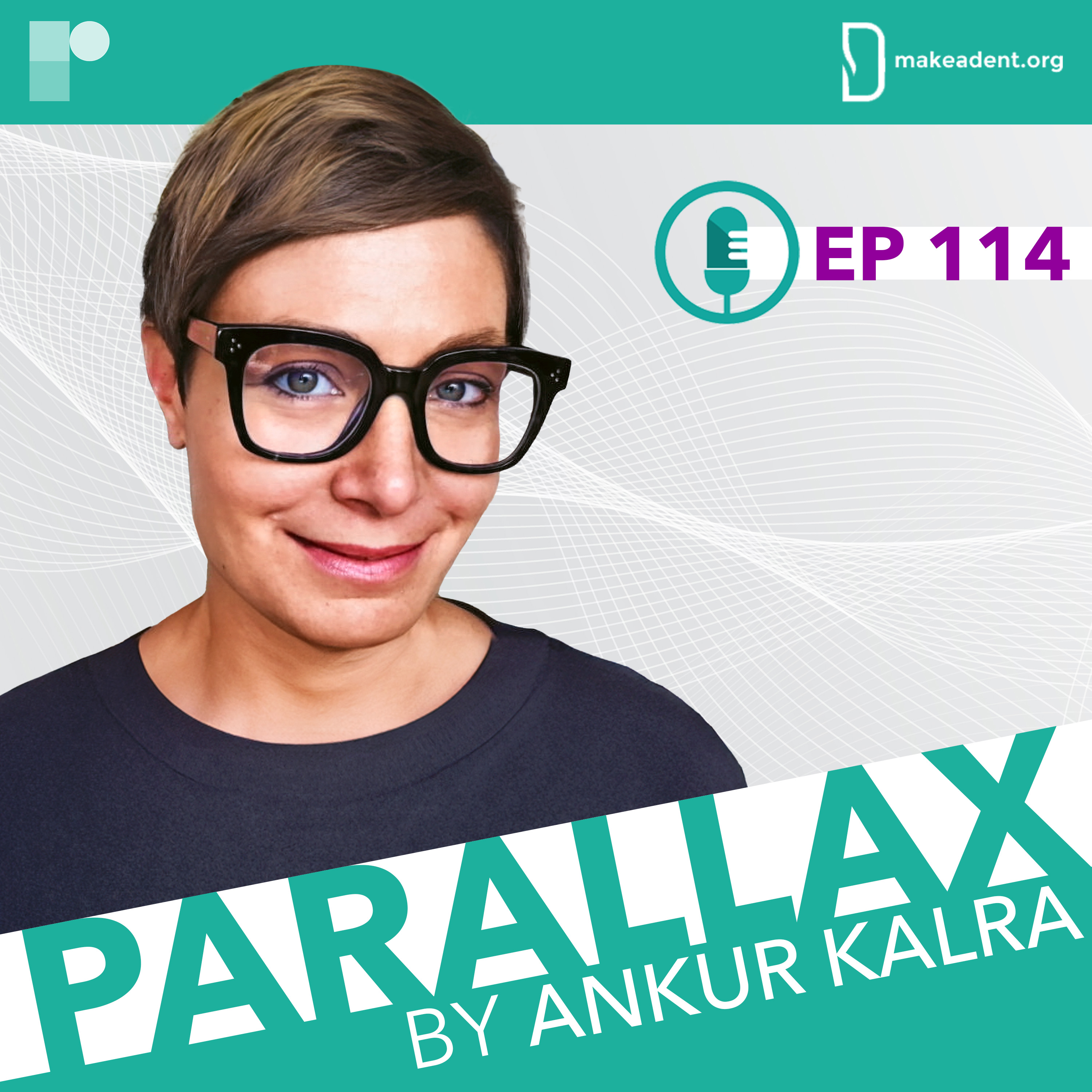
In this week’s Parallax, Dr Ankur Kalra welcomes back Shelley Wood, best known for her work in the cardiology community as the editor-in-chief of TCTMD and Editorial Director of CRF. They discuss her work as a creative author and her second novel, The Leap Year Gene of Kit McKinley, set to be published by Harper Collins in Canada and Union Square Press in the US in August 2024.
Blending the intrigue of a medical thriller with a sweeping overview of the twentieth century, The Leap Year Gene of Kit McKinley tells the story of Kit McKinley, whose rare genetic condition causes her to age one year for every four. In this rich discussion, Ms Wood shares how her extensive experience as a medical writer and editor shaped her approach to crafting the novel. Dr Kalra and Ms Wood also explore one of the book’s central themes: eugenics, tracing its historical roots and examining its long shadow on medicine. Ms Wood, who balances a demanding full-time job with her creative writing, shares candid insights into her routine and the challenges of writing and publishing fiction.
Tune in for an inspiring conversation about creativity, the human condition and balancing responsibilities.
To pre-order Shelley Wood new novel search for The Leap Year Gene/ The Leap Year Gene of Kit McKinley in your favourite independent bookshop or here.
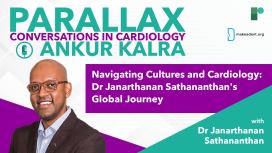
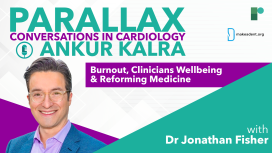

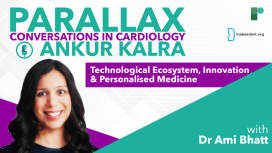
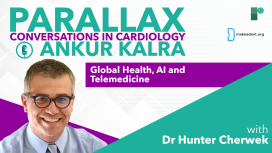
They talk about AI assisted consultation, learning pathways incorporating simulators for early career practitioners and the Flying Eye Hospital. Dr Cherwek shares his experiences about working with local teams globally and the work that goes into setting up trials across the world.
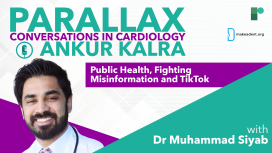
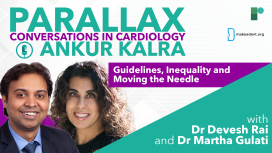
Dr Ankur Kalra’s guests this week are Dr Martha Gulati, internationally recognized cardiologist specializing in Women and Heart Disease, Heart Disease Prevention and Dr Devesh Rai, first year cardiology fellow at Rochester General Hospital.
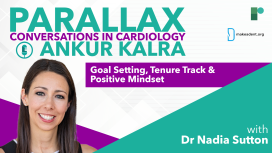
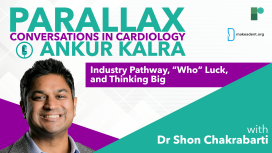

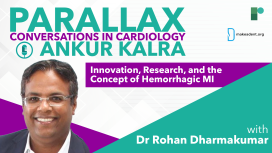

Ankur Kalra asks Grant W Reed, Director of the Cleveland Clinic’s STEMI program, to reflect on the actions they took and the challenges of delaying cardiovascular procedures in the wake of the coronavirus pandemic. Dr Reed offers insight on the factors that influenced the Cleveland Clinic’s STEMI policy for COVID-19. Ankur and Grant discuss the triage considerations for patients with structural heart disease and the steps the clinic took to protect its healthcare workers.
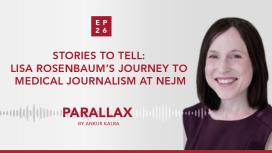
In this edition of Parallax Dr Kalra asked Dr Rosenbaum about the influences that shaped her choices as a writer and as a healthcare professional. Dr Rosenbaum opens up about her childhood and how she connected to her grandfather through writing and medicine. We learn about Lisa’s first day at medical school and her latest writing project.
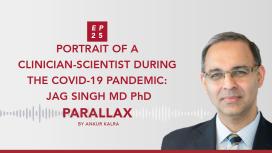
Jagmeet P Singh, associate chief of the cardiology division at Massachusetts General Hospital and professor of medicine at Harvard Medical School joins Ankur Kalra for a deep conversation about his journey across three continents. Dr Singh talks about the importance of choosing fulfilment over success. We gain more insights on the recent late-breaking trial, MADIT-CHIC focusing on cardiac resynchronization therapy. Ankur asks Jag about his experience of being on the other side of the healthcare system and his enrolment in the since halted remdesivir trial.
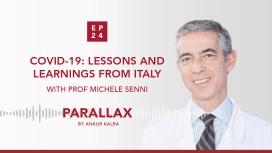
Prof Michele Senni is Director of Cardiology at Papa Giovanni XXIII Hospital, Bergamo Italy. He contracted COVID-19 himself and in this latest podcast he meets with Ankur Kalra, MD to discuss his personal experience in dealing with patients and COVID-19 in Europe’s outbreak epicentre.
Hear them discuss the burden on healthcare, patient selection, the importance of testing and PPE and how COVID has resulted in a reduction of acute myocardial infarction and heart failure in patients.
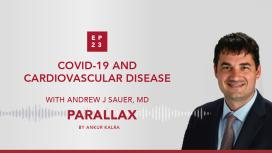
In this latest episode, Ankur Kalra, MD meets with Andrew Sauer, MD, co-author of an upcoming paper in US Cardiology Review on COVID-19 and Cardiovascular Disease that provides a concise and current summary of cardiovascular complications from COVID-19.
Hear them discuss the latest issues surrounding the pandemic, the known cardiac implications and the rapidly emerging data.






